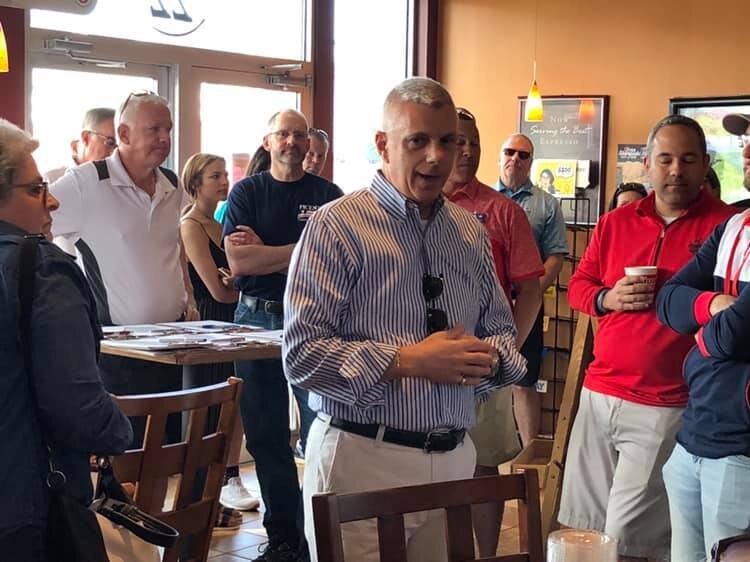Oneida County Executive Anthony Picente says it was a 'terrible week' for the COVID pandemic By Luke Perry
Oneida County Executive Anthony Picente said “we had a terrible week” at his recent COVID press conference. Wednesday was “our deadliest day yet” with six reported deaths.
“This is a stark reminder that we are far from escaping the deadly grip of this horrible pandemic,” Picente said, and “must continue to remain on alert and follow the guidelines that help prevent the spread of this virus.”
Phase Three is potentially a week away, “which is good news for us,” Picente explained, but “as we move through a safe and controlled reopening of Oneida County, we cannot let our guard down.”
There have been 1,097 confirmed cases of COVID in Oneida County and 58 deaths.
Nearly all of the recent COVID-related deaths in Oneida County occurred in nursing homes, as well as the vast majority of COVID-related deaths overall. “The nursing home deaths are tragic,” Picente said, “and just keeping going up.”
Picente told Talk of the Town (WUTQ in Utica) “the deaths are really frightening me more and more when we’re losing so many people. What happens going forward here?”
Hospitals, nursing homes, and group homes “still have to operate.” These cases of necessary confinement are going to lead to more cases.
“It’s all well and good we can open, and people can be out and about, and get to that sense of community we know,” Picente said. “But we still have to deal with what happens indoors with this thing.” This will likely remain a challenge until a vaccine is developed.
Oneida County has experienced positive developments as well. “We are testing much more” and “that’s a good thing,” Picente said. COVID cases “are still a very low percent of the number we’re testing.”
There have been “a lot of asymptomatic positives,” an unexpected finding that health experts will have to examine more closely.
Photo from Executive Picente (June 2019)
New Hartford School District generated controversy this week after holding socially distanced graduation ceremonies at the Stanley Theater. Picente intervened because “the Stanley has to be closed. They could not and should not have opened their doors.” New Hartford then moved the ceremonies to their school facilities, which the Governor’s office halted.
“A lot of furor over a matter that quite frankly could have been resolved if we worked together and waited,” Picente said. The Governor has subsequently provided further guidance, allowing drive-in, virtual, and individualized graduation activities.
“At the end of the day,” Picente said, “we need to be a little more cautious and that’s why we needed to wait to get some guidelines so we weren’t jumping the gun.”
Picente has heard questions of why someone is more at risk at a graduation ceremony than shopping in a store, like Walmart. “Let’s put things in perspective,” Picente said. “I mean, they have groceries. They have food. What are we supposed to do shut down every single thing? How are people supposed to survive?”
“The point of bringing grandparents, aunts and uncles from wherever, into a graduation, whether it’s six, seven or ten people,” Picente explained, “it’s what we’re trying to avoid.” Picene said “we closed schools for this purpose.”
Picente said he is “trying to follow what is best for my community in terms of what we’re trying to do to stop this spread.” This is “about trying to keep people safe,” not prevent them from celebrating joyous occasions.
Luke Perry (@PolSciLukePerry) is Professor of Government at Utica College






